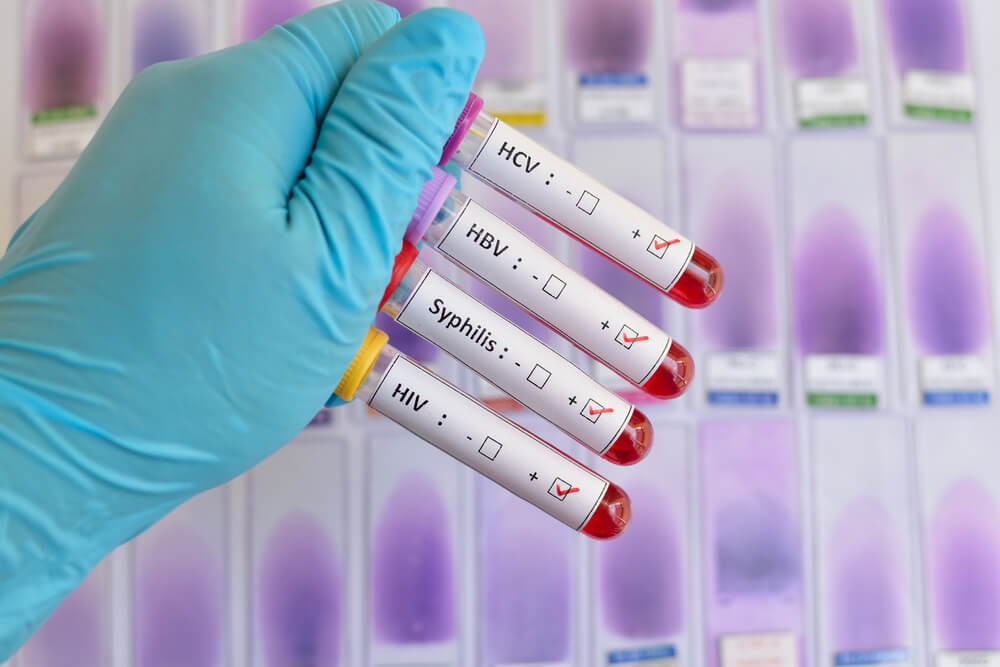One of the major health issues among adults and young teens alike includes sexually transmitted diseases. Although many find it rather uncomfortable to even talk about it, it’s important to raise awareness about this problem since it can help with prevention and better treatment. To be able to work on prevention of STDs among teenagers and young adults, parents, teachers, and other adults who work closely with these young groups of people should educate them and provide them with detailed information and understanding about STDs. Let’s learn a little bit more about sexually transmitted diseases and see what can be done for preventing them.
What Is a Sexually Transmitted Disease?
Sexually transmitted diseases are diseases that are transferred from person to person by sexual contact. Many STDs don’t show any symptoms which is why it’s important to test yourself for STDs if you think you might have them. This is the easiest and quickest way to start with treatment options and get better.
Many teens and young adults don’t even know they have STDs, but after changing a few sexual partners, they spread the disease to others as well. The most common sexually transmitted diseases include:
- Chlamydia
- Gonorrhea
- Human papillomavirus
- Genital herpes
- Syphilis
- HIV
To be able to understand better the possible symptoms and consequences of sexually transmitted diseases, you can consult the Worldwide Pediatrics Group and inform yourself more. Our team of skilled doctors and caregivers is available for all questions you might have, so don’t hesitate to contact us today!

How Do STDs Start?
Usually, an STD is contracted by having vaginal, oral, or anal sex with an infected person. Although the person in question might not show any visible symptoms of the disease, they can have it and transfer it to every sexual partner if they practice unprotected sex. In the case of genital herpes and HPV, skin-to-skin contact is enough to transfer the disease.
How Common Are Sexually Transmitted Diseases?
STDs are a very common occurrence among teens and young adults, especially in the US. It’s estimated that there are about 20 million STD cases each year in the US alone. The young are at a higher risk of contracting STDs because of several reasons, such as:
- Many young people don’t get tested for STDs.
- Bodies of young people are biologically more prone to contracting an STD.
- Young people generally don’t like to talk about their sex lives with adults and avoid consulting them on these topics.
- Some teens and adults don’t have the proper insurance or possibility to get tested for STDs.
- Some young people tend to have more than one sex partner which increases the chances of contracting an STD.
Because of this and other reasons, it’s smart to think about what can be done to help teens and young adults to become more open when it comes to talking about their sex lives and STDs. Parents, teachers, and other adults should think of adequate approaches to achieve this goal easily and successfully.
How To Protect Yourself From STDs?
Another important thing for preventing STDs and reducing the number of infected people is to know how to protect yourself properly from them:
- The best way to be protected from STDs is to not have sex at all. This means no vaginal, no oral, and no anal sex. Besides, there are many things you can do with your partner without having sex and it’s okay to say “no” if you don’t feel like it’s time for you to have sex. Listen to your emotions.
- If you decide to start having sex with your partner, you should both get STD tested before doing anything. Even if you are both healthy, using protection such as condoms, every time you have sex is recommended to avoid unplanned pregnancy. You should inform yourself about where to buy condoms and how to use them correctly. Being in a monogamous relationship and not using protection should be practiced only if you’re both completely healthy and are planning to form a family.
- To reduce the risk of getting an STD, it’s important to don’t have more than one sexual partner. People who change sexual partners often are more likely to get an STD.
- Risky behavior such as using alcohol and drugs while having sex can be unsafe and sometimes even dangerous. People who are prone to abusing psychoactive substances are more likely to make poor life choices and contract an STD on the way.
- Feel free to talk to your doctor, gynecologist or nurse about STDs. There is no need to be ashamed or embarrassed, they are there to help you. They can provide you with valuable information about possible vaccine shots against certain STDs, possible tests, and the necessary care and treatment.
- Considering women can develop other diseases and conditions that are hard to cure, they should pay more attention to their reproductive health and get tested regularly for cervical cancer, chlamydia, and gonorrhea. Talking about birth control and unplanned pregnancies is also important.

How To Know If You Have an STD?
Since many STDs don’t have any visible symptoms, months can go by without you knowing you have it. This is why it’s paramount to regularly get tested for STDs and ensure you’re healthy or receiving proper treatment. The safest way to know is to get tested. You can do this in a safe environment without anyone ever finding out. Find the nearest STD testing place and get yourself checked quickly and easily.
Are STDs Curable?
Some STDs can be treated with prescription medication like chlamydia and gonorrhea. In the case of herpes and HIV, there is no known cure, but doctors can give you medications that can alleviate the symptoms so you can live without any serious complications. Treating STDs has to be done with both partners if you are to prevent transferring it back and forth. This is true even if you have more than one sexual partner – all of them should be tested and treated properly if diagnosed with an STD. Consult your doctor and they will tell you what to do and how to behave.
Who Can I Ask For Help?
If you at any point feel some STD or pregnancy scare symptoms, it would be a good idea to talk to your parents or a professional and be sure what’s going on. You should always be honest with those you are talking to because that’s the only way they can help you. Your parents don’t have to be the only ones you can talk to – you can find another adult you trust and consult them about anything that interests you. Consulting a doctor, gynecologist, or a nurse can also be a good idea since they are medical workers who are trained to help in situations like these. Whatever you decide, always be honest and open about what bothers you. STDs can be a really big problem if not diagnosed and treated properly. To avoid any health complications among teens and young adults, recurring to professionals or trusted adults for help is your safest bet.



